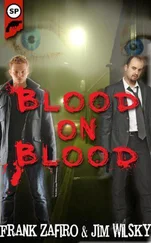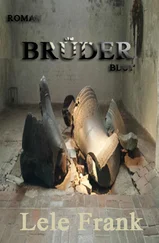Frank Tallis - Vienna Blood
Здесь есть возможность читать онлайн «Frank Tallis - Vienna Blood» весь текст электронной книги совершенно бесплатно (целиком полную версию без сокращений). В некоторых случаях можно слушать аудио, скачать через торрент в формате fb2 и присутствует краткое содержание. Жанр: Исторический детектив, на английском языке. Описание произведения, (предисловие) а так же отзывы посетителей доступны на портале библиотеки ЛибКат.
- Название:Vienna Blood
- Автор:
- Жанр:
- Год:неизвестен
- ISBN:нет данных
- Рейтинг книги:3 / 5. Голосов: 1
-
Избранное:Добавить в избранное
- Отзывы:
-
Ваша оценка:
- 60
- 1
- 2
- 3
- 4
- 5
Vienna Blood: краткое содержание, описание и аннотация
Предлагаем к чтению аннотацию, описание, краткое содержание или предисловие (зависит от того, что написал сам автор книги «Vienna Blood»). Если вы не нашли необходимую информацию о книге — напишите в комментариях, мы постараемся отыскать её.
Vienna Blood — читать онлайн бесплатно полную книгу (весь текст) целиком
Ниже представлен текст книги, разбитый по страницам. Система сохранения места последней прочитанной страницы, позволяет с удобством читать онлайн бесплатно книгу «Vienna Blood», без необходимости каждый раз заново искать на чём Вы остановились. Поставьте закладку, и сможете в любой момент перейти на страницу, на которой закончили чтение.
Интервал:
Закладка:
During this pedagogic digression, List's voice had become whiny and querulous. Perhaps realizing that he had departed from his intended narrative, he sighed, and resumed his story.
“It was an arduous journey, but we persevered. We climbed steadily until I could see the Heathen's Gate in the distance, black against the horizon-a great arch, towering above us. When we had accomplished our goal, I lit the solstice fire. We stood, united, and drank toasts to the long-forgotten heroes of the Quadi… and in the glowing embers of that holy fire, I arranged our bottles in the shape of the eighteenth rune. The stars glittered in a clear sky, as lamps in heaven.”
As he said these words, List raised his hands as though beseeching a deity. He remained in this position for a moment before allowing his hands to slowly descend. When he spoke again, his voice was less reverential.
“In the weeks after the removal of my cataracts, I was confined to bed, the only comfort being the press of my dear wife's hand, and I experienced…” His sentence trailed off. “I experienced a kind of… waking dream. Again, I found myself approaching the Heathen's Gate… where I lit not a solstice fire but an invocatory fire. I stared into the dancing flames, which began to suggest certain forms- fleeting patterns that sprang into being before vanishing. Among the twisting ropes of fire, I could detect a certain regularity of shape-the curvature and intersection of lines, the emergence of a luminous female figure that, by degrees, achieved permanence. What followed was an experience that is almost impossible to communicate… Words, ordinarily so potent, seem utterly inadequate; however, after many hours of intense reflection, I could only conclude that my experience was one of mystical revelation.”
The assembly stirred, and a few puzzled glances were exchanged.
“Long hours of interminable lonely darkness have liberated my spirit. It has soared through the abyss, and communed with the weltseele, the world soul… I have become a channel, through which sacred knowledge flows… I speak to you this evening not as a blind scholar but as a prophet. The thousand-year twilight of the German people is coming to a close. We will see, in our epoch, the dawn of a new golden age of heroism. Let our enemies mock and scoff-let them deride the old ways… for their days will soon be at an end.”
Unexpectedly, two men in the middle of the assembly stood up and raised their hands.
“Heil und Sieg!” they cried. Soon the battle cry had been taken up by everyone present.
10
AFTER THE MEETING HAD been brought to a successful close and the vote of thanks given, Von Triebenbach issued discreet invitations to his most trusted deputies. He was delighted to report that their distinguished guest had consented to attend an informal party, upstairs in Von Triebenbach's apartment. They climbed up the stone steps that ascended from the basement-with its honeycomb of chambers-to the ground floor, where they negotiated a further flight of stairs leading to the first floor. At Von Triebenbach's door they were welcomed by servants wearing cockade hats and were escorted through two anterooms into an impressive parlor.
A mountain of glowing coals burned brightly under the arch of a large black-marble fireplace. On the mantelpiece was a substantial clock, the intricate workings of which were visible through a glass cover. The furniture-consisting of display cabinets, a bureau, three couches, and several chairs-was early-eighteenth-century. Striped burgundy wallpaper adorned the walls, and classical figures-almost life-size-made silent music on pipes and lyres. The center of the room was dominated by a rosewood-veneer grand piano, the castors of which were buried in a thick Persian carpet.
Aschenbrandt was eager to show List his work, and as soon as the great man was settled on one of the couches, he begged the baron to introduce him. List accepted the young man's proffered hand, and Von Triebenbach-always kindly disposed to Aschenbrandt-explained that the young musician was eager to perform the overture of a work in progress: an opera based on the author's novel Carnuntum.
List graciously consented and Aschenbrandt, excited beyond measure, sat down at the Weber grand and opened his piano score.
The room fell silent.
Aschenbrandt brushed thin wisps of platinum hair behind his ears and his pale face grew solemn. He raised his hands and allowed them to fall onto the keyboard, striking three dramatic opening chords-his celluloid cuffs rattled. An ostinato bass conjured images of marching soldiers, over which an oscillating figure of open fourths and fifths suggested a brassy clarion call. The music was literal, but it was also evidently to the taste of the audience, who nodded appreciatively at the transparent programmatic references. The music ended with a triumphal theme in the relative major key, played fortissimo. Even before the showy coda had come to its predictable conclusion, Von Triebenbach was on his feet. The ovation lasted for several minutes, with List participating as enthusiastically as anyone else present. It was an endorsement that Aschenbrandt had hardly dared dream of, and when List congratulated the young composer personally, he felt as though he had been crowned with a laurel wreath.
After the concert, servants supplied guests with champagne and frosted cubes of crystallized fruit. For a short while there was a general mingling, during which Von Triebenbach circulated among his friends. Eventually the company separated into small groups-some sitting, others standing, but all engaged in animated conversation.
Von Triebenbach and Professor Foch were seated at either side of List, who was expounding his views on the writings of Houston Stewart Chamberlain-an Englishman who had made Vienna his adoptive home. Chamberlain's idea of a great northern alliance, in which all the old Germanic peoples-the Germans, Austrians, English, Nether-landers, and Scandinavians-might join forces, was indeed very appealing. Such an alliance would, as Chamberlain suggested, be invincible; however, List queried Chamberlain's inclusion of the French as Teutons-a position that he considered untenable. Even so, the Englishman's work was certainly worthy of the utmost respect.
Hannisch, Aschenbrandt, and Olbricht were standing in a close group by the piano.
“Well,” said Hannisch to Aschenbrandt, “you must be feeling very proud. What did he say to you?” The counselor's gaze darted toward List.
Aschenbrandt leaned forward to ensure privacy.
“He said that he was deeply moved… that my music had captured perfectly the heroic spirit of the Quadi.”
“High praise indeed,” said the counselor, popping a cube of sugared plum between his bright red Cupid's-bow lips. “You are a very lucky young man.”
“Indeed, and I believe, sir, that we are all indebted to you, for-”
Hannisch killed the compliment with a hand gesture and began to make dismissive puffing sounds. “Not at all, dear fellow, not at all. It was my pleasure.” He sucked some sugar from his fingertips. “Your overture reminded me a little of Rheingold,” he added. “The entry of the giants.”
“You are too kind,” said Aschenbrandt.
“And when do you think the opera will be completed?”
“In a year or so, perhaps. Now that I have the approval of the author, I feel completely inspired. I will work day and night on the score.”
“Tell me, Herr Hannisch,” said Olbricht, capturing the counselor's attention, “does the mayor intend to proceed with the Mozart memorial?”
“Yes, I think so,” Hannisch replied. “If I've understood the minutes correctly.”
“I submitted some drawings to the mayor's office…”
“Oh?”
“Unfortunately, they were rejected. Although, to be frank, I was in two minds about such a project.”
Читать дальшеИнтервал:
Закладка:
Похожие книги на «Vienna Blood»
Представляем Вашему вниманию похожие книги на «Vienna Blood» списком для выбора. Мы отобрали схожую по названию и смыслу литературу в надежде предоставить читателям больше вариантов отыскать новые, интересные, ещё непрочитанные произведения.
Обсуждение, отзывы о книге «Vienna Blood» и просто собственные мнения читателей. Оставьте ваши комментарии, напишите, что Вы думаете о произведении, его смысле или главных героях. Укажите что конкретно понравилось, а что нет, и почему Вы так считаете.












